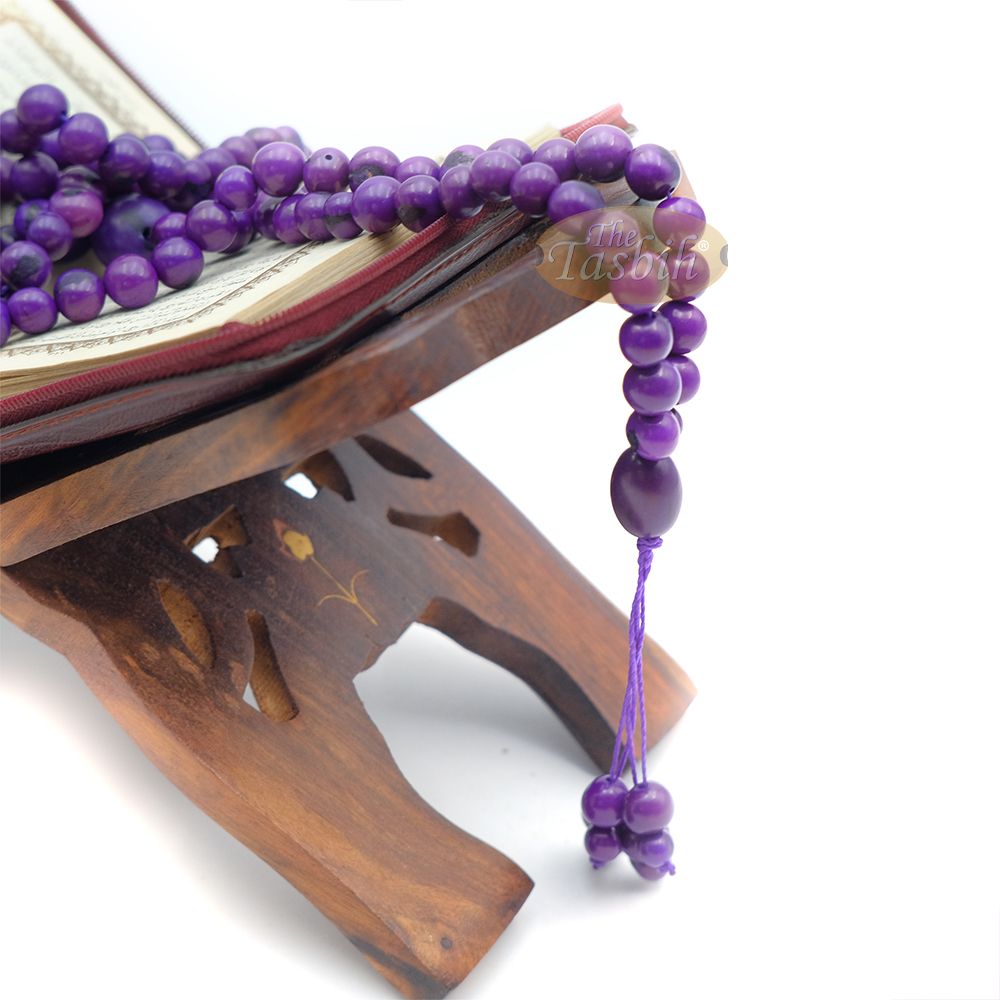Dark Purple Natural Colored Dye Eco-Friendly Sustainable Original Açai Seed 9 mm Beads Traditional Tasbih
Dark Purple Natural Colored Dye Eco-Friendly Sustainable Original Açai Seed 9 mm Beads Traditional Tasbih
Stok rendah: 2 tinggal
Tidak dapat memuatkan ketersediaan pengambilan
SKU: TJR-TADPR






- Description
- Details
In recent years, the world has witnessed a growing interest in eco-friendly and sustainable products. This shift in consumer behavior is driven by a heightened awareness of environmental issues and a desire to reduce the negative impact on our planet. One such product that has gained popularity is the acai seed tasbih, a prayer bead commonly used in Islamic traditions. What sets this tasbih apart is its unique feature of being colored with vegetable dyes, adding an extra layer of eco-friendliness and appeal. In this article, we will delve into the qualities and advantages of the acai seed tasbih colored with vegetable dyes. Qualities of Acai Seed Tasbih: Natural Acai Seeds: Acai seeds are the primary component of this tasbih. These seeds are obtained from the acai berry, a fruit that grows abundantly in the Amazon rainforest. The seeds are not only aesthetically pleasing due to their natural patterns but also lightweight, making the tasbih comfortable to hold during prayers and meditation. Durable and Long-Lasting: Acai seeds are known for their durability. They are resistant to wear and tear, ensuring that the tasbih retains its beauty and integrity over time. This quality is essential for an item meant to be used in spiritual practices and handed down through generations. Symbolic Significance: The tasbih holds profound spiritual significance in Islamic culture. It is used as a tool for counting prayers and supplications. The use of acai seeds, derived from nature, serves as a reminder of the intricate beauty and magnificence of the natural world, fostering a deeper connection to both spirituality and the environment. Handcrafted Artistry: Crafting acai seed tasbihs is often a labor-intensive process. Skilled artisans carefully select, drill, and string the seeds to create these prayer beads. This handcrafted approach adds a sense of authenticity and uniqueness to each tasbih, as no two are exactly alike. Advantages of Vegetable Dye Coloring: Eco-Friendly and Sustainable: One of the most significant advantages of using vegetable dyes to color acai seed tasbihs is the minimal environmental impact. Vegetable dyes are derived from natural sources such as plants, fruits, and vegetables, making them biodegradable and non-toxic. Unlike synthetic dyes, they do not release harmful chemicals into the environment during production or decomposition. Reduction in Chemical Exposure: The process of dyeing tasbihs with synthetic dyes involves the use of various chemicals that can have adverse effects on human health and the environment. Vegetable dyes, on the other hand, are free from such harmful chemicals, reducing the risk of exposure to toxins. Unique Color Variations: Vegetable dyes offer a rich and earthy color palette that cannot be replicated with synthetic dyes. Each dye batch can result in slightly different shades, adding to the uniqueness and charm of each tasbih. This variation aligns well with the appreciation of diversity in both the natural world and spiritual practices. Aesthetic Appeal: The use of vegetable dyes enhances the visual appeal of acai seed tasbihs. The natural, muted tones achieved with vegetable dyes harmonize with the earthy aesthetic of the acai seeds themselves. This results in a tasbih that is not only functional but also a beautiful piece of art. Support for Artisan Communities: The demand for vegetable-dyed acai seed tasbihs can have a positive impact on artisan communities that specialize in handcrafting these items. By choosing products that prioritize sustainable practices and craftsmanship, consumers can contribute to the livelihoods of these artisans and their families. In conclusion, the acai seed tasbih colored with vegetable dyes embodies a harmonious blend of spirituality and environmental consciousness. Its qualities, derived from nature and handcrafted artistry, are complemented by the advantages of using natural vegetable dyes. By choosing such a product, individuals not only connect with their spiritual practices but also make a positive choice for the planet. As the world continues to embrace sustainable alternatives, the acai seed tasbih strands as a symbol of reverence for nature and a testament to the power of mindful consumer choices.
Key Features
- Natural colored
- Handmade traditional tasbih
- Eco-friendly tasbih
- Made in South America
- Unique artisanal tasbih
| Brand | Blessed Tijara |
| Color | Dark Purple |
| Material | Wood |
| Wood Type | Açai Seed |
| String Color | White |
| Weight | 100 g |







